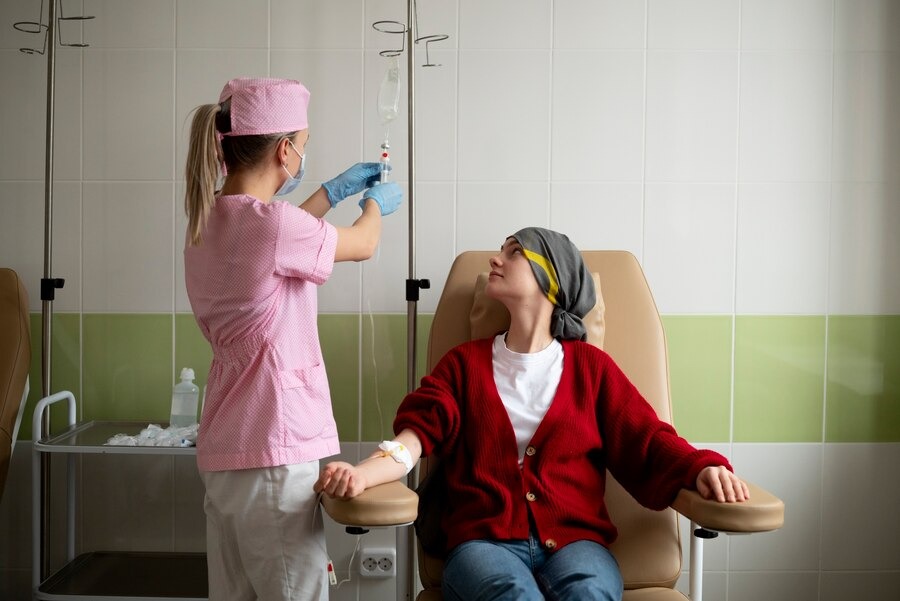The Role of Clinical Trials in Advancing Cancer Treatment Through Research

Cancer treatment has come a long way, largely due to ongoing cancer research and clinical trials. These trials are a critical component of medical research, helping to test new therapies and refine existing ones to ensure safer, more effective treatments. Through clinical trials, patients can access the latest medical advances, often long before they are available to the wider public. The following is a detailed post on how clinical trials are shaping the future of cancer treatment and why they play such an important role in medical progress.
What is meant by Clinical Trials?
Clinical trials are structured research studies that evaluate the safety and effectiveness of new drugs, therapies, and medical procedures. They involve different phases, each designed to answer specific questions about the treatment’s safety, side effects, dosage, and effectiveness.
- Phase 1 focuses on testing the safety of a treatment in a small group of patients.
- Phase 2 further assesses the effectiveness of the treatment and continues to monitor for side effects.
- Phase 3 compares the new treatment to the current standard treatment to see which works better for patients.
- Phase 4 trials happen after a treatment has been approved, monitoring its long-term effects on a larger population.
These phases ensure that only treatments that pass through rigorous testing reach cancer patients, offering a path toward potentially groundbreaking cancer treatment options.
Advancements in Cancer Research Through Clinical Trials
Every significant improvement in cancer treatment can be traced back to clinical trials. They allow scientists to turn discoveries in the lab into real-world treatments. Clinical trials are at the forefront of cancer research, helping to:
- Test new cancer drugs and therapies.
- Improve early detection and prevention methods.
- Refine existing treatments to make them more effective.
One of the most significant advances has been in immunotherapy, a treatment that empowers the body’s immune system to fight cancer. Clinical trials have helped bring various immunotherapies to the forefront, such as immune checkpoint inhibitors and CAR T-cell therapy.
The Role of Precision Medicine
Precision medicine is a growing trend in cancer research, where treatments are tailored to the genetic profile of a patient’s cancer. This personalised approach ensures that therapies are more effective for each individual. Clinical trials play a central role in developing these tailored therapies, helping to test new drugs that target specific genetic mutations. Through trials, researchers can identify which patients are more likely to benefit from certain treatments, thus improving overall treatment success rates. For example, targeted therapies have shown great promise in treating cancers like lung and breast cancer, where specific genetic markers can be identified.
Benefits to Patients
Patients who participate in clinical trials gain access to cutting-edge treatments that are not yet available to the general public. This can be especially valuable for patients whose cancer is not responding to standard therapies.
Participation in a clinical trial can also give patients:
- Close monitoring by medical experts
- Access to a team that focuses on their care
- The possibility of receiving new treatments that are more effective or have fewer side effects.
In addition, by taking part in cancer research, patients contribute to medical advancements that could help others in the future.
Challenges in Clinical Trials
Despite their importance, clinical trials face several challenges. Recruiting patients for trials is one of the biggest hurdles. Many people are not aware of the trials or may find the eligibility criteria restrictive. Other challenges include the financial burden of participating in a trial, travel commitments, and distrust of experimental treatments. Moreover, trials can be expensive, and not all of them lead to successful outcomes. Around 70% of Americans are willing to participate in clinical trials, but many do not due to logistical and financial barriers. Addressing these issues is key to improving participation and advancing cancer treatment through clinical research.
Conclusion
Clinical trials are essential for advancing cancer treatment and improving patient outcomes. They help to refine current therapies, develop new treatments, and bring innovative approaches like immunotherapy and precision medicine to cancer care. Participation in these trials not only gives patients access to cutting-edge treatments but also plays a crucial role in shaping the future of cancer research. Moreover, they offer hope to patients by potentially improving survival rates and enhancing the quality of life for future generations battling cancer.







